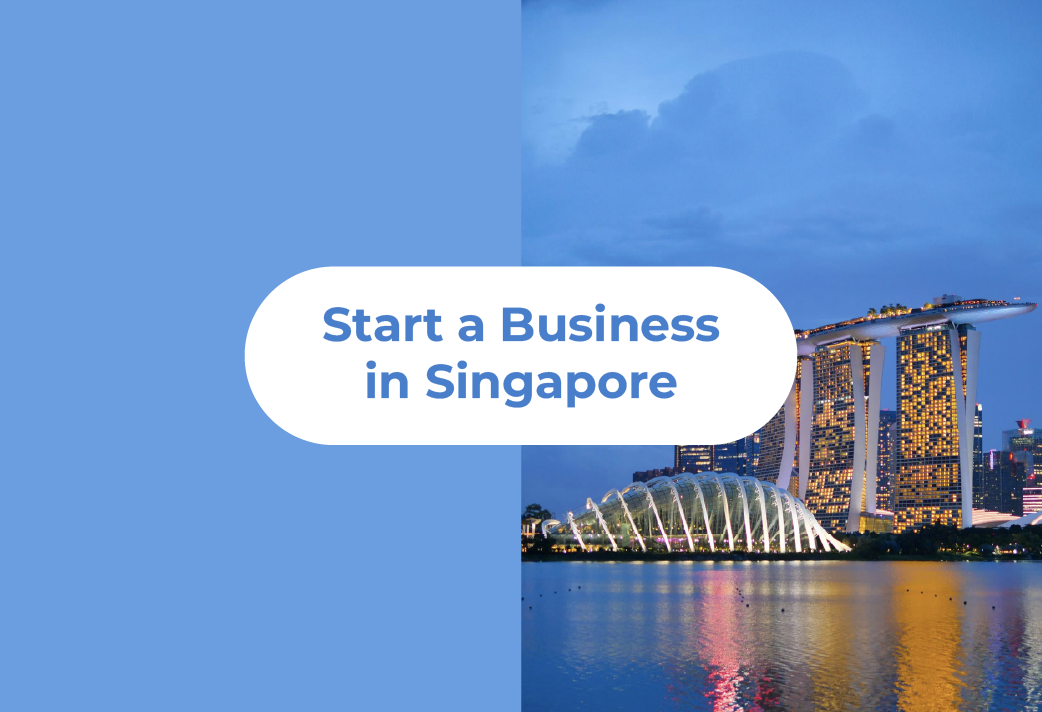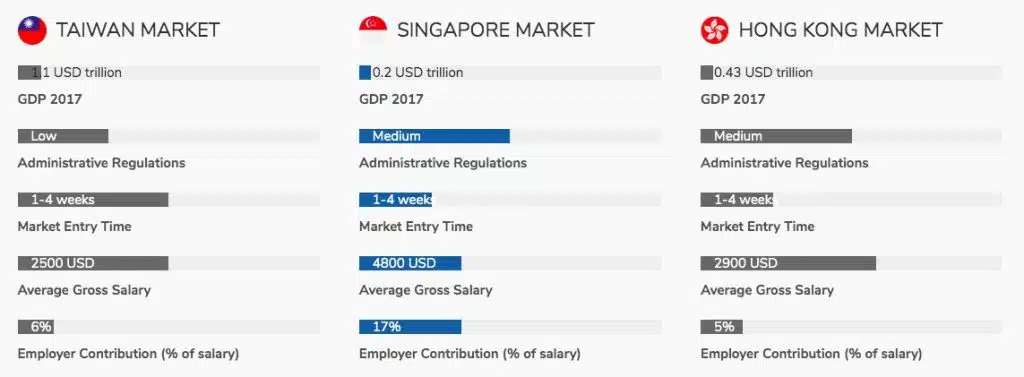We help foreign enterprises to start, grow and sustain their business in Singapore. We offer comprehensive support tailored to the needs of your business.
Take your business to Singapore and your talent with you. INS Global offer a PEO service for businesses who wish to start their operations in Singapore. When you use our service, your employee is legally employed in Singapore by INS Global, exclusively on your behalf. You define their mission while we take care of onboarding, payroll and tax, and compliance with Singapore labour law. It’s that simple.
Our transparent, low-cost solution means that there’s no need to establish a costly subsidiary in Singapore, your employee is hired and can get to work on your company’s growth in record time. Join hundreds of companies using INS Global’s PEO service to enter new markets today.
Table of contents
- Introduction to Singapore
- Singapore Public Holidays
- Working hours
- Overtime
- Rest periods
- Holiday entitlement
- Termination/Severance
- Singapore Visa
- Payroll
- Singapore Healthcare
- Singapore Tax
- Why INS Global
Business environment in Singapore
Singapore is an island city-state located in South East Asia, a mere 85 miles north of the equator. With a land area covering just over 700 km2, Singapore may be small in geographical size, but its economy is far from it and makes use of one distinct advantage: its location. Its natural deep-water ports are some of the busiest in Asia and are a key driver of national economic growth, serving as major shipping routes to neighbouring countries in Southeast Asia. As such, its economy has a robust reputation characterised by stable growth, in large thanks to its pro-business environment and political stability. Singapore also enjoys one of the lowest unemployment rates in the world at 2.2%.
The World Bank recently named Singapore as the easiest place to do business in the world, its highly developed and robust economy make it a popular destination for foreign companies to set up and develop their business operations. In general, the Singapore government foster a business friendly regulatory environment, earning its title as the easiest place to do business in the world. In 2015, Singapore became the first ASEAN country to sign a Free Trade Agreement with the European Union.
The Singapore Advantage
As a global business hub, Singapore offers tremendous opportunities for logistics and global market expansion. The island-state is also a critical link between business communities from nearly every corner of the globe. As a highly competitive environment, businesses must be careful of high administrative costs. Using a partner with deep knowledge of the market can be a make-or-break advantage.
Doing business in Singapore: Things to know
Singapore Public Holidays
The following public holidays are celebrated in Singapore:
- New Year’s Day
- Chinese New Year
- Labour Day
- Vesak Day
- Hari Raya Puasa
- National Day
- Hari Raya Haji
- Deepavali
- Christmas Day
Working hours in Singapore
For common work arrangements, contractual hours should not exceed 44 hours per week. Employees who work fewer than 5 days per week should not work more than 9 hours per day. Employees who work more than 5 days per week should not work more than 8 hours per day. Contractual hours of work differ for other work arrangements.
Overtime
Employees in Singapore can claim overtime if they are:
- A non-workman earning up to $2,600.
- A workman earning up to $4,500
Employees taking overtime must be paid at least 1.5 times their hourly basic rate of pay and receive their overtime period payment within 14 days after the last day of the salary period.
Rest periods
Employers in Singapore must provide 1 rest day per week. Your employer cannot force you to work on a rest day, unless under exceptional circumstances.
Singapore Holiday Entitlement
Employees who have continuously worked for an employer for at least 3 months are entitled to annual leave. The minimum statutory annual leave allowance is 7 days plus 1 day of each additional year worked with the employee until the 8th year at which the number of days of annual leave remains at 14 days. In practice, annual leave is pro-rated to a calendar year basis for easy tracking.
It may be possible for employees to carry forward unused annual leave entitlement to the following year, depending on company policy.
Termination/Severance
Either employee or employer may serve their required notice to end the employment relationship. In event the notice period is not served in full, monetary compensation may apply to “buy-out” the period not served.
There is a no regulated probation period, however, in practice periods can range from 1 to 6 months. If either party give notice to end the employment relationship in the probation period, notice periods range from 1 week to 1 month. Notice period after the probation period usually ranges from 1 month for junior to mid-level staff to 2 months and above for higher level staff.
Singapore work visa
All foreigners who intend to work in Singapore must hold a valid work visa before they start work. The work visa is broadly categorised into 3 groups: Employment Pass (EP), S Pass, and Work Permit.
Employment Pass
For professionals with a good track record, work experience and are highly educated. This is usually foreign professionals, managers, executives, etc. Candidates need to earn at least $3,600 per month.
S Pass
For mid-level skilled workers. Candidates need to earn at least $2,300 per month and meet the assessment criteria.
Work Permit
For semi-skilled foreign workers employed in construction, manufacturing, marine shipyard, process or services sector.
S Pass and Work Permit are subjected to quota (i.e. how many locals the company employs). For instance, to hire a Chinese S Pass retail service worker, the company should employ 12 local person headcount).
Paying salary in Singapore
In accordance with the Employment Act, an employee’s salary must be paid at least once per month with the pay day falling within 7 days after the end of the salary period. In practice, salary is paid before the last day of each calendar month.
Healthcare
For foreign staff, healthcare insurance is not a requirement for Employment Pass (EP) employee, however healthcare insurance is required for all Work Permit and S Pass employees.
For local staff, healthcare insurance is not a requirement, however if an employee carries out manual labour or is earning $1,600 or less per month, the employer is required to purchase workmen injury compensation insurance for them.
Singapore Tax
Any individual who resides in Singapore for more than 183 days within a calendar year will be considered as a tax resident in Singapore. All income earned by that individual will be taxed progressively dependent on the level of income declared.
Additional important information
Candidates from terrorist related or sanctioned countries may face difficulties obtaining a work visa.
Develop your business in Singapore: Partner with INS Global
Starting a business or hiring in Singapore can be a daunting prospect. Although it boasts a business friendly regulatory environment, compliancy with employment and business law is a must for any business to succeed in the market. INS Global has experience in the Singapore market; we can help you to hire staff in Singapore quickly and compliantly, allowing you to fully focus on running your business.
Contact our expert team today to learn how our PEO service and other services can help you reach your expansion goals today.



SHARE